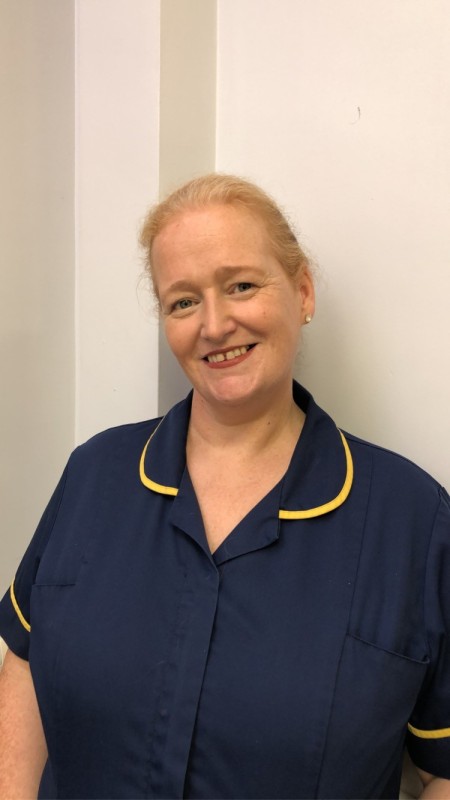Publish date: 20 July 2023
Heather Lawson shares a day in the life of a community infection prevention and control nurse
What’s a typical day like?
The integrated infection prevention and control (IPC) team work in both acute and community settings with the nurses predominately working in the community, focusing on IPC in a variety of settings and locations.
As a community IPC nurse, there are no two days the same and the diversity of the role is far and wide. You could be providing training for our community teams in rural Northumberland one day, working into schools teaching key stage 1 hand hygiene, helping to manage outbreaks in care homes, auditing a GP practice, supporting patients, carrying out investigations into why patients have infections, policy writing or attending a Children’s Countryside day with 1,500-plus children the next!
The main remit of role is one of support, training and education and we provide this to not only our community teams working for the trust, but we also work into and support nursing and residential care homes, primary care, UKHSA, local authorities, public health departments, schools and the general public including our patients.
What’s the best part of the job?
The diversity of the role and seeing the difference you can make to care homes that may be failing, but with hard work and engagement, you can actually see positive changes happening and practices improving benefitting both staff and residents.
Our team is also important, as a relatively small team my colleagues all support each other and encourage each other to succeed and develop themselves both professionally and personally.
What skills are needed to be a Community IPC nurse?
You need to have an analytical brain to interpret data and trends and be able to problem solve. Good communication is key as you have to talk to a multitude of professionals relaying sometimes complex information. An innovative streak is always handy as community IPC requires lots of creativity in order to get our message across to different groups of people with varying degrees of understanding. Creativity, and innovation is key to planning our successful IPC study day which the team work hard to deliver every year!
Any tips for future IPC nurses?
My advice to anyone with an interest in IPC is to take an active role by becoming a link professional, get as much experience as you can in different areas, be inquisitive, challenge poor practice and be honest and open in your approach to IPC. Most importantly communicate with the IPC team, we’re here to support and no question is a silly one. If it is bothering you or you’re not sure then ask us!
